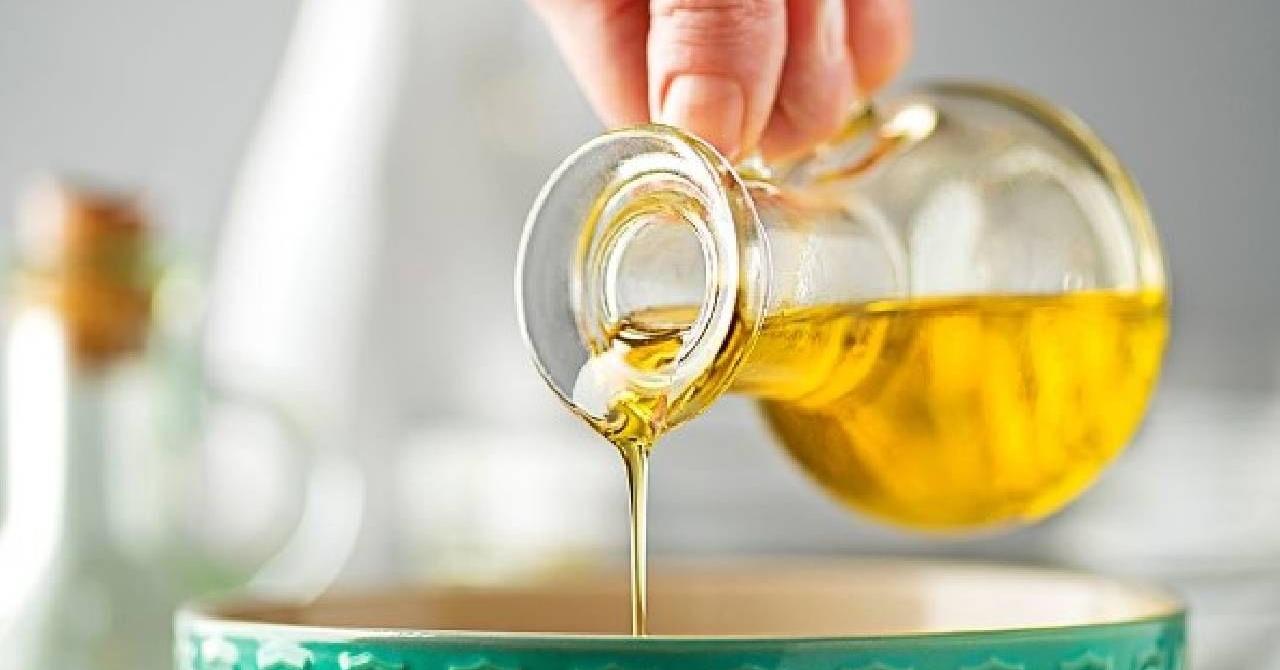Are you curious to know what is refined oil? You have come to the right place as I am going to tell you everything about refined oil in a very simple explanation. Without further discussion let’s begin to know what is refined oil?
Refined oil, a staple in kitchens around the world, undergoes a meticulous process to transform crude oils into a versatile cooking medium. In this article, we delve into the nuances of refined oil, exploring its composition, production process, and the role it plays in our culinary endeavors.
What Is Refined Oil?
Refined oil is a type of cooking oil that undergoes processing to remove impurities, flavors, and odors, resulting in a clear, neutral-tasting product. This meticulous refinement enhances the oil’s stability, making it suitable for various culinary applications.
What Is Refined Oil Made Of?
Refined oil is typically made from various sources, including seeds, nuts, or fruits. Common varieties include soybean oil, sunflower oil, and canola oil. The raw material’s composition influences the nutritional profile and applications of the refined oil.
What Is Physically Refined Oil?
Physically refined oil is a subcategory of refined oil that undergoes a process primarily involving physical methods like steam distillation and deodorization. This method aims to retain the oil’s nutritional components while removing impurities and unwanted flavors.
What Is Refined Cooking Oil?
Refined cooking oil is a versatile and widely used form of refined oil specifically crafted for cooking purposes. It has a high smoke point, making it suitable for frying, sautéing, and other high-heat cooking methods.
What Is Refined Sunflower Oil?
Refined sunflower oil is a popular cooking oil extracted from sunflower seeds. The refining process removes impurities, enhancing its shelf life and making it a preferred choice in kitchens worldwide.
What Is Refined Oil Good For?
Refined oil’s neutral taste and high smoke point make it suitable for a variety of culinary applications. It is often used for frying, roasting, baking, and other high-temperature cooking methods. The refining process also imparts stability, increasing the oil’s shelf life.
What Is Refined Oil Used For?
Refined oil’s versatility extends to various culinary applications, including:
- Frying: Refined oil’s high smoke point makes it ideal for deep frying.
- Sautéing: Its neutral flavor enhances the taste of sautéed dishes.
- Baking: Refined oil’s stability and lack of strong flavors make it a popular choice in baking.
Refined Oil: Good Or Bad?
The perception of refined oil as either good or bad depends on individual health goals and dietary preferences. Refined oil offers benefits such as neutral taste, high smoke point, and longer shelf life. However, some argue that the refining process may strip the oil of certain nutrients present in unrefined counterparts.
Why Refined Oil Is Bad?
Critics of refined oil point to concerns about the potential loss of nutrients during the refining process. Additionally, some refined oils may undergo chemical extraction methods, and the presence of trans fats in partially hydrogenated oils is a concern. Choosing unrefined or minimally processed oils is an alternative for those seeking more nutrient-rich options.
What Is Refined Sunflower Oil?
Repeated for emphasis, refined sunflower oil is a prevalent cooking oil extracted from sunflower seeds. Its neutral taste and high smoke point make it a popular choice for various cooking methods.
What Is Refined Oil In Hindi?
“Refined oil” translates to “शुद्ध तेल” in Hindi. Understanding this term in Hindi is crucial, especially for consumers in Hindi-speaking regions.
What Is Unrefined Oil?
Unrefined oil, in contrast to refined oil, undergoes minimal processing, retaining more of the original flavor, color, and nutrients. Common examples include extra virgin olive oil and cold-pressed coconut oil.
Conclusion:
In conclusion, refined oil is a key player in the culinary world, offering a neutral taste and versatility in high-heat cooking. While some concerns exist regarding nutrient loss during refining, the choice between refined and unrefined oil ultimately depends on individual preferences and health considerations. As you navigate the diverse landscape of cooking oils, understanding the intricacies of refined oil empowers you to make informed choices in the kitchen.
FAQ
Is Refine Oil Good For Health?
Instead, amounts of trans fatty acids are elevated, which is known to be bad for health. Refined Edible Oil well known to lower good HDL cholesterol and raise levels of insulin, triglycerides, and harmful LDL cholesterol. Trans fats can also lead to, cancer, diabetes and immune system problems.
What Is The Difference Between Refined Oil And Regular Oil?
Refined oil goes through much more processing than unrefined oil. It often produces a product with a longer shelf life, lower smoke point and fewer particles. Refined oils are often better for deep-frying at high temperatures because of their higher smoke point.
Which Oil Is Not Refined?
An “extra virgin” label means that the olive oil is not refined, and therefore of high quality. Extra virgin olive oil contains a large amount of monounsaturated fats and some polyunsaturated fatty acids; many studies have linked it to better heart health.
What Is The Difference Between Crude Oil And Refined Oil?
Petroleum refineries convert (refine) crude oil into petroleum products for use as fuels for transportation, heating, paving roads, and generating electricity and as feedstocks for making chemicals. Refining breaks crude oil down into its various components, which are then selectively reconfigured into new products.
I Have Covered All The Following Queries And Topics In The Above Article
What Is Physically Refined Oil
What Is Refined Oil Made Of
What Is Refined Cooking Oil
What Is Refined Sunflower Oil
What Is Refined Oil Made Of
What Is Refined Oil Good For
What Is Refined Oil Used For
Refined Oil Good Or Bad
What Is Refined Sunflower Oil
What Is Refined Oil In Hindi
Why Refined Oil Is Bad
What Is Unrefined Oil
What Is Refined Oil
